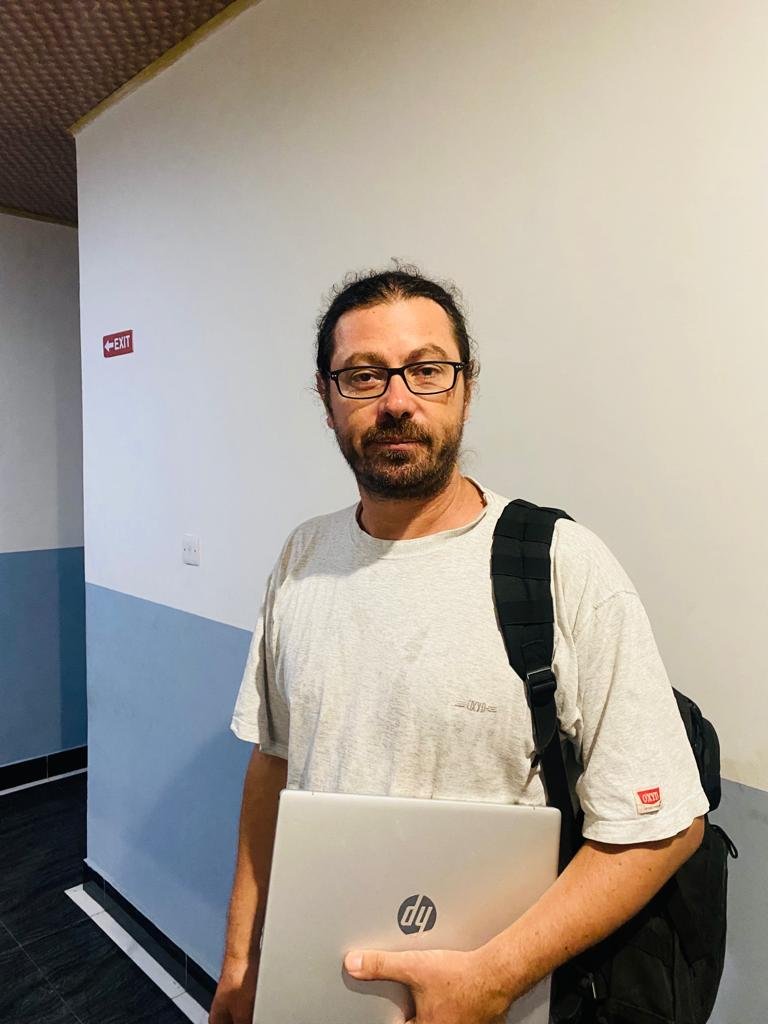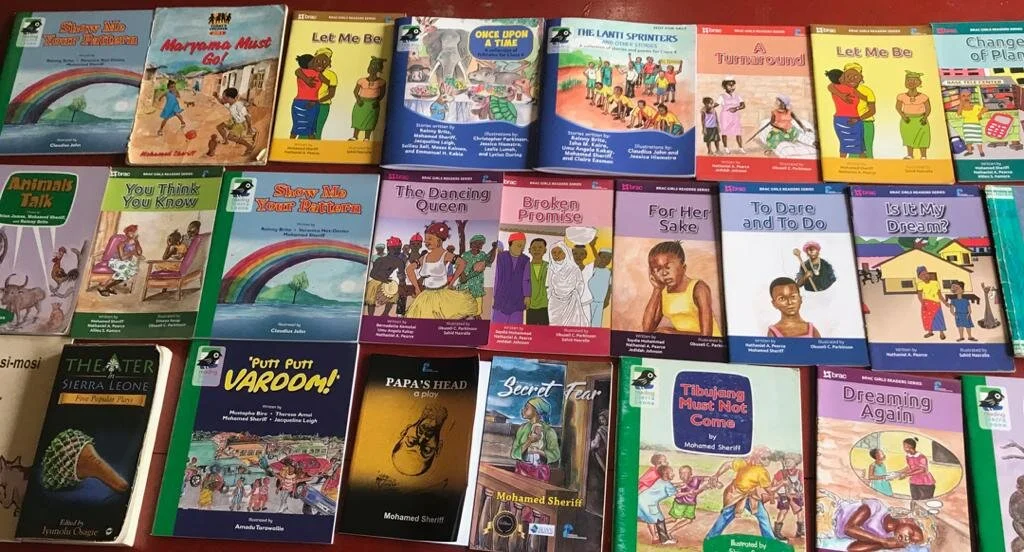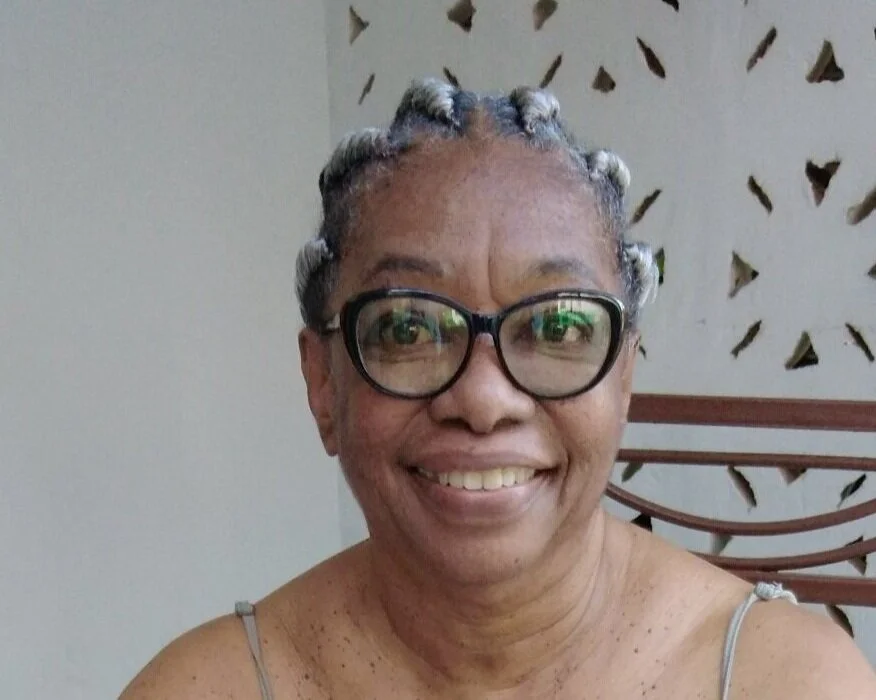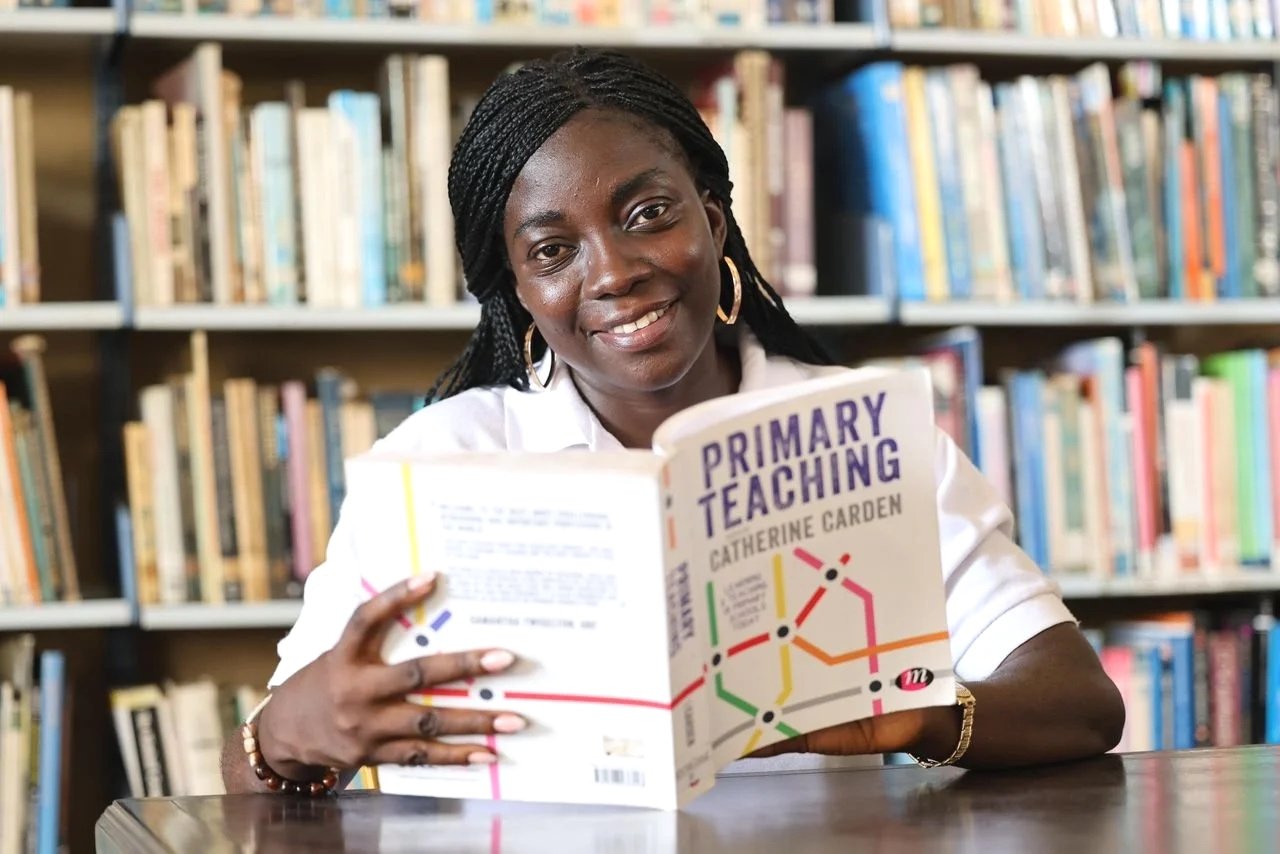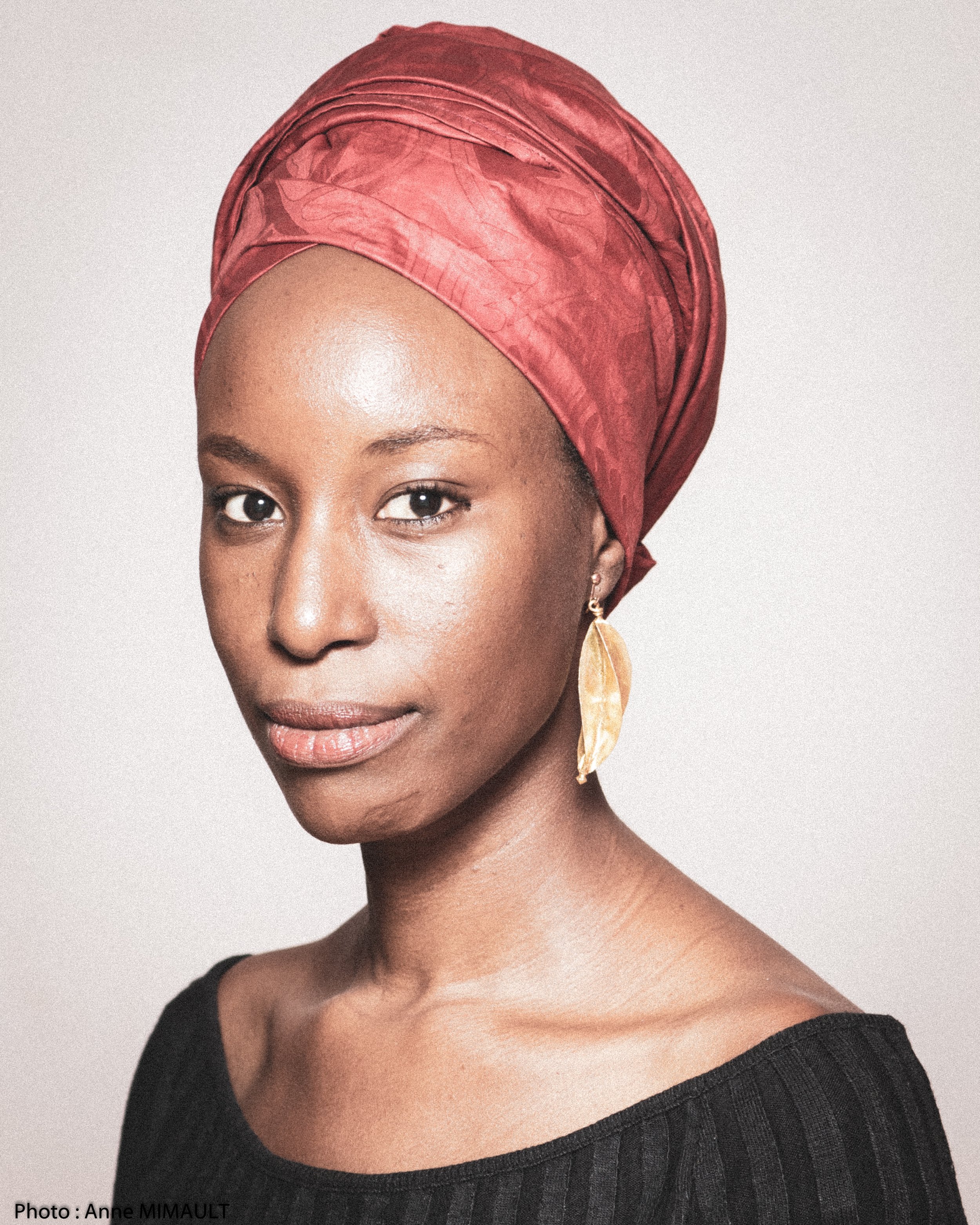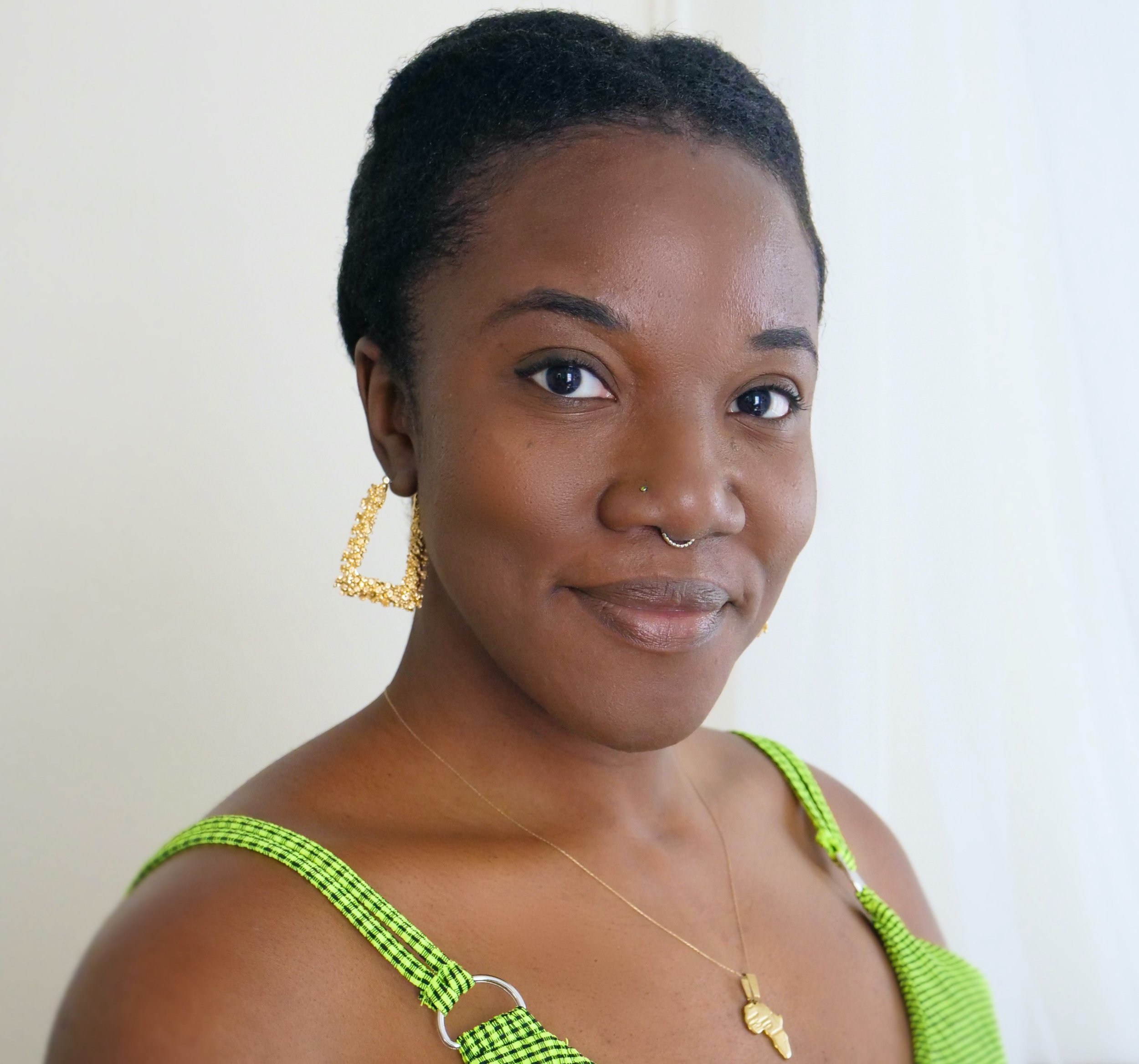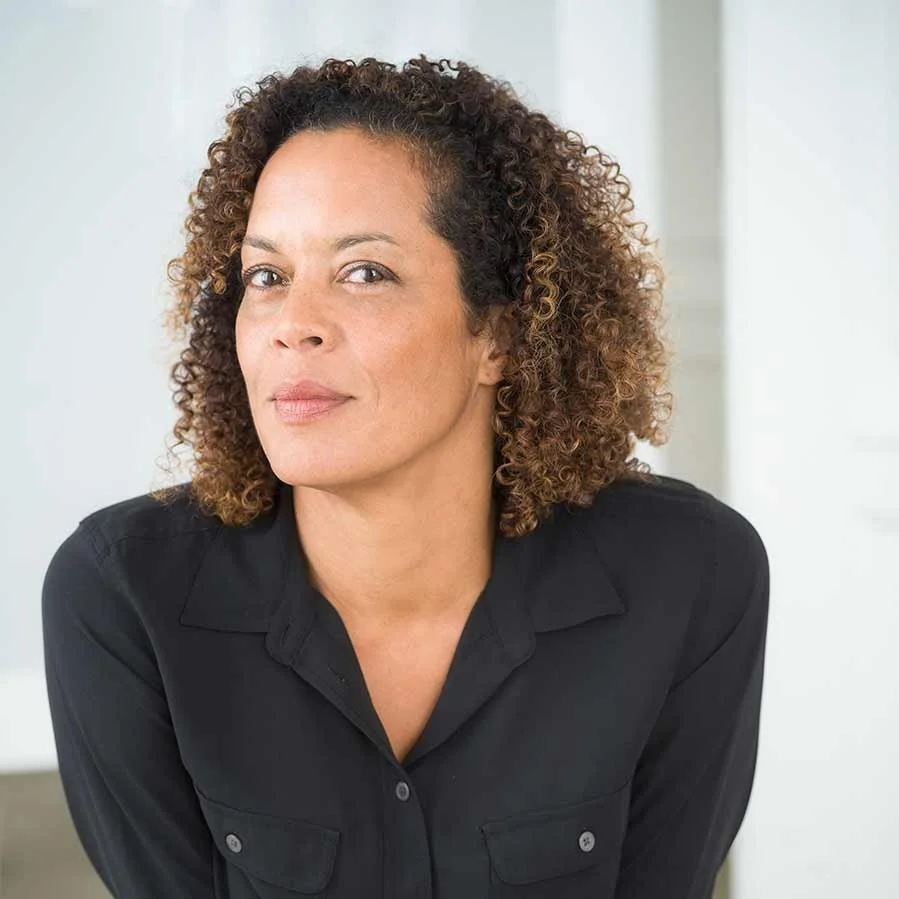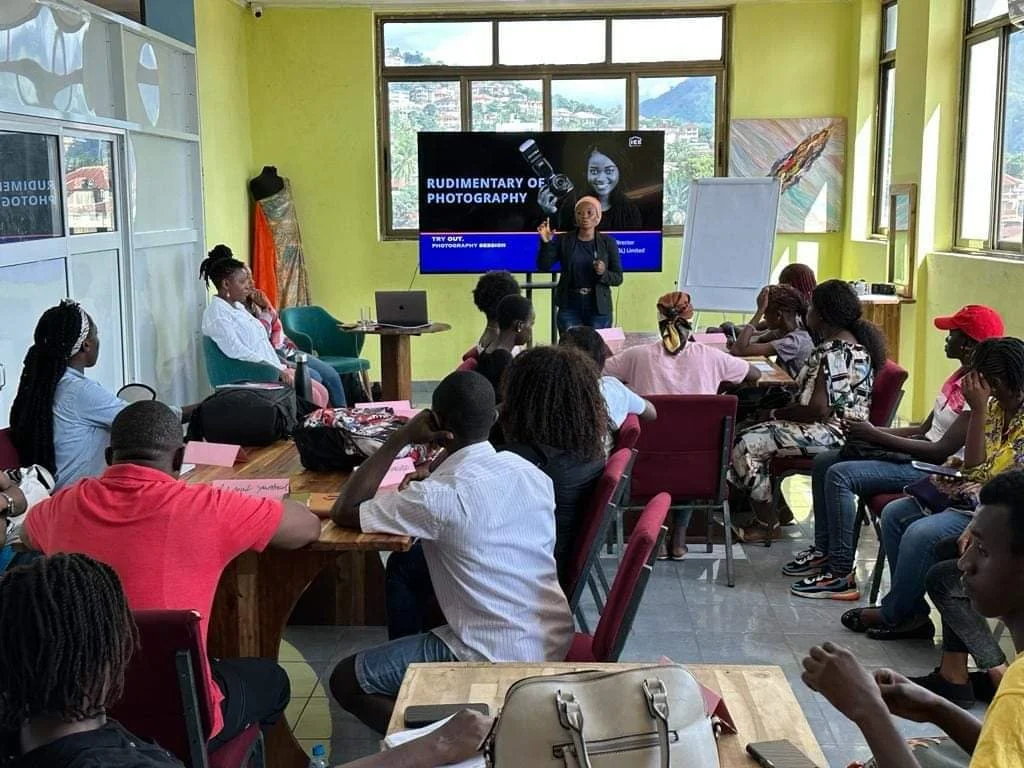
Sierra Leonean Theatre Actors have a lot of Talent”: Founder of Wan Roof Theatre talks to Poda-Poda Stories.
Wan Roof Theatre is a theatrical production group based in Sierra Leone reputed for presenting performances at different venues in the country. One of the few active theatre groups in the country, Wan Roof Theatre has staged popular performances in the past two years. Their main aim since establishment is to revive the culture of theatre-going and sharpen the skills of theatre actors in Sierra Leone.
Poda Poda Stories fellow, Sulaiman Bonnie spoke to Grigorios Delichristos, the founder of Wan Roof Theatre in Freetown.
Delichristos: I am Griogos, the Founder and part of the the board of Wan Roof Theatre. We formed the board and then we found our cast, directors and we took it from there.
Bonnie: So how and when did Wan Roof theatre come about?
Delichristos: There was a need. I have been in Sierra Leone for seventeen years myself and I don’t have the privilege to see performances being advertised. I could not see any—probably there were opportunities but not enough promotion. So during my initial days in Sierra Leone, I didn't come across drama theater and that made me feel that there is a real need to revive this art form, because it is very important for society. Theatre plays very positive roles in several ways; so, I made a call for other people who might be interested like me to start it, and not for one performance but to create a system that will on regular basis present a performance so they can be re-introduced for the new generation to know the beauty of theatre and for the old generation to go back to it. We wanted to make it accessible in regular intervals, so we put a target that every year and we will try to make many performances and make them more accessible in terms of location and put as much quality theatre as we can.
Bonnie: And in what year did you begin the work?
Delichristos: In 2021, Wan Roof Theatre was formed even though we did not present anything until May 2022. The work started in 2021 to form the board, and then we announced audition so many people came, we selected the cast and did rehearsals for the first production which was called THE LINE. This was presented at the Freetown Teachers College and Family Kingdom. In three days only, we put up those performances because we were constrained with finance.
Bonnie: After The Line, did you present any other play that same year?
Delichristos: Yes, we made an ambitious plan to present a play titled PODA PODA which is written here by the local team. Poda Poda is a contemporary Krio comedy. The directing team decided that we use Krio as the best way to approach the audience and engage them. This play marked the second term of a successful production because we had challenges in the previous ones.
Cross section of the cast of Wan Roof Theatre. Courtesy: Wan Roof Theatre culled from website
Bonnie: Who are those that make up the directing team?
Delichristos: The directing team for now is Bilal Jalloh alias BJ International and Carlos Vilasquez. We also had Benjamin DeCoste, but he is not in country anymore. Now the two directors are Carlos and BJ.
Bonnie: So why did you decide to take your plays to other parts of Sierra Leone?
Delichristos: This year we felt at more confident to do it because we don't want everything to be based in central Freetown. We want this form of acting to go out and we might get some fantastic talent in terms of actors, stage managers, directors, and playwrights. Those people will never actualize their potential if we don't bring it to them. So, this year, we went first to Makeni. We didn’t ask people to pay for tickets because we want to attract people to come and pay as they can. However, we couldn’t realise much, and we were frustrated by the lack of support. However, we were very pleased to be out there and doing it and the following week, out of the schedule, without any planning for us, a company invited us to Lunsar who provided our transportation fare, accommodation and gave honorarium to the actors. If individuals and corporate bodies can support us like this, we can take this dream to more places in the provinces.
Griogios Delichristos, the founder of Wan Roof Theatre
Bonnie: So what is the idea behind Poda Poda, the play you are currently showcasing around Sierra Leone?
Delichristos: Poda Poda is a comedy that throws light on many happenings in modern Sierra Leone with sparks of laughter. The story line is about a bunch of strangers who meet in a poda poda (public van) from Makeni heading for a concert in Freetown. Tensions arise in the middle of the journey and some social issues like corruption are brought up.
Bonnie: Can you take us through some of the serious challenges that you are facing as a production team?
Delichristos: The challenge that any form of art will get today in the present state of Sierra Leone will be the financial and this does not create space for theatre at a time when people are dealing with bigger issues. Also, it is difficult to navigate because many times we want to advertise but we don’t have the capital. We couldn't go to the media and printing cost of billboards are high. Another challenge is lack of motivation for the actors. Support is not forthcoming. The actors need money to survive. We put up performances, and only a handful of people will attend. How can the actors get a good meal, good transportation cost and good accommodation when they are on production? Again, we don't have a venue, or we don't have a venue that will say this is where we can go and do rehearsals there and we can perform there.
Bonnie: What can you say about the performance of the Sierra Leone actors that you have worked with or recruited?
Delichristos: In fact, from the first audition none of us on the board of directors expected to see this level of high talent . There is a lot of quality and potential. Their raw talent was already polished from the onset. It just needs more practicing to get it perfected. We hope that we will still be doing this for many years so we can bring up those talents and give them more chances to expose themselves and develop their talents for a lifelong career.
Bonnie: So finally using your production as an inspiration, what message do you have for the future of theatre in Sierra Leone?
Delichrostos: My message would be for everybody to try their own part, even if it is just to make a small effort to go and see a play. Let's start from there. You don't need to invest or build anything to play a part. Maybe offer support for radio stations and or a TV for adverts to promote the plays. Just do anything you can to support. If you know there is play somewhere, just buy a ticket, and go watch it. There is a whole generation deprived of theatre in Sierra Leone, so we have to work hard to address that. It is not easy, but let’s try. There are so many positive messages and cultural value in theatre. If we want it to grow, we must all make an effort to bring it back.
Sulaiman Bonnie is a 2023 fellow at Poa-Poda Stories. He is a writer, law student and teacher. He lives in Freetown, Sierra Leone.
Mohamed Sheriff on Children's Literature in Sierra Leone
Mohamed Sheriff is a Sierra Leonean children’s story writer, playwright, producer and dramatist. He is the author of several beloved children’s books and novellas from Sierra Leone, including Maryama Must Go and Secret Fear. Mohamed Sheriff has been a trainer, coach and publisher of mainly children books. As a children’s books, writer he has a dozen titles to his name, some of them anthologies; as a publisher he has published twice that number of books by other children’s books writers; and as a trainer and coach, he has worked in a number of book development projects that have seen the publication of up to forty books including anthologies for children. He also owns a communications and media company Pampana Communications Publishing and Media Consultancy.
In this interview, he talks to Poda-Poda Stories about his love for children’s literature, why it is important for Sierra Leonean children to see themselves in stories, and the future of publishing for children’s literature.
Poda- Poda: Thank you Mohamed Sherriff, for joining the poda poda. Please tell us about yourself and your work.
Mohamed Sheriff: I write children books, short stories, novellas, and screen, radio and stage plays. I’ve published several books in all of these categories and won a handful of national and international awards for my writings.
Poda-Poda: So how did you get into writing? Have you always been writing or was it something you branched into?
Mohamed Sherriff( MS): I’ve been writing since I was a kid. I did a lot of writing in my ‘head’ back then. I can say I had a hyperactive imagination that would weave a story at the tap of a button in my head. Some incident or chance happening, commonplace or extraordinary, would fire up my imagination into creating a story. I was inspired to tell stories by my mother and my step mum, who were both very good folk storytellers. In the evenings, especially during the long holidays, we - siblings, cousins, other relatives, even neighbours – mainly children, would gather in our backyard or living room and listen to their stories. I was always enthralled by the way my mother told these stories: she would sing, sway, clap her hands, tap her feet and, most captivating to me, mimic the sound of different characters, including animals in her stories, and transport us into their strange, magical or extraordinary world. That was how my love for stories, drama, books and movies evolved. I admired her storytelling so much that I wanted to be a storyteller like her when I grew up. When I was able to read, I discovered books that had similar stories like my mum told, the folk tales, and other kinds of stories, too - realistic fiction for children, and I loved them all.
The more children books I read, the more I loved the idea of writing for children. And then I started reading more complex literature, like novellas, novels, short story collections and plays. My exposure to those kinds of literature inspired me further, strengthening my resolve and nurturing my dream of becoming a writer.
The inspiration for the other important category of my writing, drama, also came from my childhood experiences. When I was little there was a theatre group in our neighbourhood called Guinness Theatre or Drama Group. I think it was sponsored by Guinness, a beverage company. The group conducted rehearsals in a compound on another street just round the corner from our house. Children would flock to the compound to watch the rehearsal and were allowed to stay as long as we behaved ourselves. We got so involved in watching those rehearsals that some of us knew many parts of the plays by heart. I can still remember some of the lines of some of those plays. We had such fun watching them that again I felt I wanted to be involved in theatre when I grew up.
Poda-Poda: How did you make the decision to go into children’s book specifically?
MS: Considering my wonderful childhood experiences at those storytelling sessions, my passion for reading children books ,it was no accident that when eventually I started writing, children books were among the first and has remained an important part of my work as a writer.
My getting into the business of actual writing for children was triggered by my encounter with Macmillan Publishers. Way back in the mid 90s they were very active in Sierra Leone. They organized a workshop to encourage Sierra Leoneans to write for children. With my passion for writing for children, I saw that as a great opportunity, so I attended the workshop, at the end of which, we were encouraged to submit manuscripts. One of the stories I wrote, “Secret Fear” a novella for young readers went on to win an international award and sold thousands of copies.
Much later, I had the opportunity to meet with an organization called CODE (Canadian Organization for the Development of Education). They invited me to a children’s book development workshop in Liberia, where they were engaging local writers and illustrators to develop their own books. After that workshop, they decided to come to Sierra Leone to launch a similar programme for Sierra Leoneans with me as a co-trainer, facilitator and editor. To date, the programme has published 29 books for children.
Besides writing for children, I have been a trainer, coach and publisher of mainly children books. As a children’s book writer I have a dozen titles of books to my name, some of them anthologies; as a publisher I have published twice that no of books by other children book writers; and as a trainer and coach, I have worked in a number of book development projects that have seen the publication of up to forty books including anthologies for children.
Poda-Poda: You’ve shared how you’ve published several children’s books. How important is it for Sierra Leonean children to have those books in schools?
MS: It is very important for these books to be in schools, because reading is one of the most effective ways to develop a child’s mind. All other things being equal, a child who engages in reading as a hobby is likely to perform better in school overall than a child who does not. Reading helps children in some very important ways: it broadens their horizons and helps develop their critical thinking and communication skills; and all of this will help them in other subject areas too, not just in literature and English. That is why it is important to encourage children to read. And I would encourage them to start by reading Sierra Leonean books. A lot of foreign children books have been brought to Sierra Leone and distributed to libraries and other institutions. Some of these gather dust on shelves because children don’t read them. This is not to say that it’s not important to read books from other places, but first we must get them interested in reading generally. When children read stories that they can relate to, it excites them and gets them more interested in reading in general. This is what we observed when we distributed books to school reading clubs and libraries through one of our book development and reading projects. The feedback was that children enjoyed reading Sierra Leonean readers than foreign books, because they can identify and engage with the stories and characters. So with all the challenges we are facing with education, one way to help our children from scratch is to promote reading and encourage them to read. It’s one way they can develop their minds against all odds. Reading is one way we can help to improve standards of education in Sierra Leone.
Poda-Poda: How can we support more writers to get into children’s literature?
MS: That is what I have been doing for the past twelve years. My organisation Pampana Communications Publishing, PEN Sierra Leone and our international partners have organized workshops to train writers to write for children. Each of these workshops end in developing manuscripts to be published. But then, because resources are limited, we can only publish what available funds allow us to publish. If the government can support these efforts, it will generate a lot of books.
Everyone one has a part to play in promoting reading. It is the responsibility of our ministry of education to put reading top of their agenda to promote quality education. School authorities should show more interest in promoting reading in their schools. They can include reading in their timetables and have a kind of library hour or reading time to encourage children to read on a regular basis. Parents too have an obligation to encourage their children to read. As parents, we should also be reading to our children and introducing them to stories. Even if it is folk stories, like the ones we used to enjoy listening to as children. That would make children interested in stories either oral or written. The demand for books will encourage more people to write.
Poda-Poda: Let us talk about your other work as a playwright. How did you start that and how has that journey been for you?
MS: When I was writing my dissertation in university, among the option of topics we had was, Recent Trends in Sierra Leonean Theatre. I chose that topic without hesitation. With it I saw an opportunity to watch plays, read play scripts and meet with actors, stage crew and directors during the course of my research. By the time I completed my research and wrote my dissertation, I was absolutely certain I was going to be a playwright. Fast forward to where we are now, I have written well over thirty plays for stage, radio and screen and for the purpose of both entertainment and social change. And I have published, staged and screened a number of these plays and won some national and international awards for playwriting in the process.
It’s been quite an interesting but challenging journey. One of the biggest challenges of particularly theatre in the 80s and 90s was an acute lack of venues for theatrical performances. Up until the mid 80s we had the City Hall as the main venue for theatre. The British council auditorium had always been there, but not accessible to everyone. So the City Hall became a hugely popular venue for plays attracting huge crowds from mid week to the end of the week. Unfortunately in the mid 80’s the then Committee of Management in charge of the Freetown City Council placed a ban on performing plays at the City Hall.
The author, Mohamed Sheriff.
Poda-Poda: Why was there a ban?
MS: All I knew was that the head of the committee said that the hall was not for theatre but other important civic functions. That action seriously affected a lot of groups that relied mainly on that hall for their performances. Many groups simply stopped operating.
A few including my company, Pampana, tried to overcome the challenge by switching focus from producing theatre as art entertainment to producing theatre for social change or development on demand from various organisations that paid for our services. Unlike theatre for art entertainment requiring a built up stage with sometimes elaborate sets in a specified venue, theatre for development can be done anywhere there is space – street corners, market places, village centres, town halls and open community fields
So the ban gave those who were resilient and resourceful an opportunity to create and stage plays for community theatre or theatre for development. But for a number of the groups it was either the end of the road or the beginning of a long period of dormancy.
Poda-Poda: What an interesting journey! It is really unfortunate how theatre declined in Sierra Leone. How can we revive this in Sierra Leone?
MS: That’s a very big question! It’s quite a challenge. There are people working behind the scenes to revive it. However, the biggest challenge is that you cannot do this without money. You have the talents, writers, actors, directors and producers, but to mount your play, you need an audience. To get the audience to go back to theatre, that is a big challenge. The economic situation in the country is such that, most people would have to choose between spending 40,000 -50,000 leones on theatre or using it for something more essential like food or transportation. So that’s our biggest challenge. The government or big businesses could help if they wish to. For a start if they could identify four or five reputable groups, who could perform 2-3 plays per year, and provide them with funds for the productions annually, this would allow those groups to sell tickets at affordable prices and give members of the public the opportunity to watch up to 15 plays per year. That way, drama productions could be sustained over time.
Poda-Poda: When you say “the government”, who specifically are you referring to?
MS: The Ministry of Tourism and Culture. I’ve heard in theatrical circles that the Ministry is interested in reviving theatre, and that the minister has called a number of meetings to discuss the way forward. I hope some progress has been made, and I bet one of the main challenges the ministry would also be facing is lack of funds.
One simple way to work towards reviving theatre is to support groups to produce plays on a regular basis.
Poda-Poda: What advice would you give to writers who want to go into playwriting or children’s literature?
MS: I have met many people who see writing as a way of making money. There is nothing wrong with that. Most dream of publishing best sellers. There’s nothing wrong with that too. Nothing wrong with dreaming big. But you must love to write. You must have the passion for it. Initially the love for writing must be stronger than the desire to make money out of it. That love would let you put your heart and soul into your writing and give you your best seller. Thinking about making money above all else could lead to frustration and disappointment in this field.
To develop excellent writing skills, you must read and keep reading and keep writing. Read, read, read, and write, write, write. And do that with a lot of love. Somewhere along the way, your talent would flourish and be recognized.
Also with so much competition these days, it would be helpful to look at innovative ways you can market your works besides relying on the publisher alone. But first you must develop your skills as a writer.
To buy Mohamed Sheriff’s books, contact him at 82 Sanders Street, Freetown, email him at msaydia@gmail.com or call 076612614.
Interview by Ngozi Cole
Sierra Leone at 60: Playwright Charlie Haffner Reflects
To celebrate 60 years after gaining independence, Poda-Poda Stories , interviewed Charlie Haffner, legendary Sierra Leonean playwright, founder of Freetong Players, and creator of popular radio drama Atunda Ayenda.
Charlie Haffner talked about the use of theatre arts over the years, and what Sierra Leoneans should reflect on after 60 years of gaining Independence.
Yema Lucilda Hunter on Documenting Sierra Leonean Lives through Fiction.
Yema Lucilda Hunter is a celebrated Sierra Leonean novelist, biographer, and librarian. Her work includes Road to Freedom, Bittersweet, Her name was Aina, and a biography: An African Treasure - in Search of Gladys Casely-Hayford. Lucilda Hunter was born and raised in Freetown, Sierra Leone. She attended the Annie Walsh Memorial School and studied in the United Kingdom, qualifying as a librarian. As a librarian, she worked for the the Ministry of Health and Sanitation in Sierra Leone, WHO, and was made a Fellow of the British Library Association, since renamed The Chartered Institute of Library and Information Professionals. As a writer, Yema Lucilda Hunter illustrates everyday Sierra Leonean life into rich prose, through her keen eye as a documentarian.
In this email interview with Poda-Poda Stories, Hunter shares the inspiration behind her writing.
Poda-Poda: Thank you for joining the Poda-Poda. Tell us about your journey as a writer and librarian? Did you always want to be a writer or was it something you fell into?
Yema Hunter (YH): I hesitate to call myself a writer as I don’t often feel compelled to put fingers to a keyboard, or pen to paper, though I always enjoyed and got good marks at school for what used to be called ‘Composition’. However, I AM the author of six novels and a work of non-fiction. My career as a professional librarian is what started it. While browsing the shelves of the Africana Collection at the National Library in Sierra Leone, I came across an old book in which a 19th Century visitor to Freetown mentioned a brief encounter with one of the black Nova Scotian settlers who arrived in the country in 1792. I learned some history of which I had been totally unaware and found it so fascinating that I felt other Sierra Leoneans, especially citizens of Freetown, might find it equally interesting, especially if it was conveyed in a non-scholarly manner. That was how I came to write my first novel, Road to Freedom, published in 1982. A new edition has recently been issued with the title Seeking Freedom.
Poda-Poda: What is the inspiration for writing your novels, particularly BitterSweet and Redemption Song?
YH: Sierra Leone, Freetown in particular, has inspired all my novels. The story line for Bittersweet occurred to me following the sudden death by road accident of a young cousin. I imagined the plight of a young wife and mother unexpectedly widowed, and the story unfolded from there. Redemption Song came twenty-five years later and was inspired by the civil war in Sierra Leone. Though the country is never mentioned and the course of events is ahistorical, anyone who knows Sierra Leone and experienced the war has no difficulty discovering the story’s setting.
Poda-Poda: In writing your novels, do you often find that you put a certain lens on, or a unique perspective? If so, what are they? What are some of the issues you want to highlight when writing?
YH: I write novels about Sierra Leoneans for Sierra Leoneans, thought it is gratifying when non-Sierra Leoneans enjoy them as well. My main characters are usually, Krios, descendants of the Liberated Africans who were settled in the Freetown area early in the 19th century. Of course, over the years, their interactions with members of the indigenous populations has become more frequent, hence no novel is only about Krios. My intention is to write stories about ordinary Sierra Leoneans living ordinary lives.
Poda-Poda: What is your writing process like? Do you have a certain pattern or routine?
YH: I am fairly disorganised . I have an idea for a story and once my first paragraph is clear in my mind, I plunge straight in, seeking necessary information and fleshing out the main characters as I go along. Progress of the story tends to be organic as I never know exactly what is going to happen until it does. I edit chapter by chapter and do a complete revision when the work is complete.
Poda-Poda: Poda-Poda Stories highlights authors from Sierra Leone, and it has often been difficult to discover the work of Sierra Leonean female writers pre the 21st century. You’ve also written a biography: An African Treasure, in Search of Gladys Casely-Hayford, 1904 – 1950, about Gladys Casely-Hayford, whose work isn’t quite well known, especially in Sierra Leone. How important is it to know about Gladys, and also to discover Sierra Leonean female authors during her time?
YH: Probably, there were not many published Sierra Leonean female writers up till the mid to late 20th Century. Adelaide Casely-Hayford and her daughter, Gladys are the only two pre-independence female writers I can think of. After independence, female writers of textbooks and supplementary readers for primary schools began to appear. Talabie Aisie Lucan and Melvine Stuart come to mind. I am not aware of any bibliography of Sierra Leonean female writers in the country, but I believe another Sierra Leone-born librarian, Wilma Jones, has produced one. However, she lives and works in the US and I am not aware that it has been formally published or is available in Sierra Leone. The problem is that Sierra Leone is not a nation of readers. Unless a literary work has been used as a school textbook, eg, my novel Road to Freedom, it remains largely unknown. I have the impression that most Sierra Leoneans acquainted with Road to Freedom, are not even aware that I have written other novels.
Poda-Poda: You’ve also had quite an illustrious career as a librarian. In your work, has accessing information become easier and what is the future of digital archiving in Africa especially?
YH: I retired more than twenty years ago, but even then, thanks to computer technology, accessing information had become far easier than it was at the start of my career. It has become easier still. Anybody can Google and search the internet in other ways. However, the skills of librarians and other information professionals are still needed for assessing the relevance and accuracy of information obtained. Digital archiving is a boon to developing countries where document preservation and storage has often been most unsatisfactory. I have been delighted to learn that archival digitization projects are being planned or are actually on course in Sierra Leone.
Poda-Poda: We always ask writers this question. How has writing saved your life?
YH: I would not say that, but it has certainly enriched my life, though sadly, not financially. I have always been an avid reader but writing my own books has forced me to widen the scope of my reading as works in progress often require considerable research.


